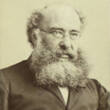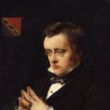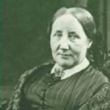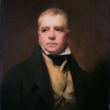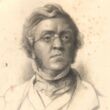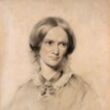NoveList provides detailed suggestions for other authors you might want to read if you enjoyed this book. Suggestions are based on recommendations from librarians and other contributors.
Busch is highly regarded for his historical fiction, which evokes the rich, redolent style of Dickens. Busch's control of convoluted plotting, his attention to character and language, and the fine line he walks between drama and melodrama in his historical novels will appeal to Dickens's readers. -- Katherine Johnson
What novelist Charles Dickens is to mid-19th century London and England, Honore de Balzac is to a slightly earlier Paris and France: the chronicler of an age. Observing all social classes, these prolific masters of large casts of characters, complex plots, and richly detailed settings know everything about their worlds. -- Michael Shumate
Carey and Dickens write dramatic novels with sweeping and complex plots. Both excel at developing and describing characters they place in amazingly creative situations, and their overflowing plots seem to be little more than recordings of what happens once they set their characters free. Carey's tone and style are more contemporary. -- Katherine Johnson
Readers first encountering the quirky, eccentric characters and unforgettable names in Mervyn Peake's fiction can be forgiven if they think they have stumbled upon a lost novel of Charles Dickens. Dickens has a mastery of plot Peake does not possess, but in visual, atmospheric worldbuilding they have much in common. -- Michael Shumate
Charles Dickens's fiction and Anne Perry's evocative mysteries are both set in a detailed and atmospheric Victorian London and explore the social issues of the age. Perry's stories are darker and represent crimes more vividly than in Dickens, but both have much to offer readers. -- Katherine Johnson
Sarah Waters does not set all her novels in the period when Dickens lived, but her elegant writing, detailed settings, complex plotting, and vividly developed characters may appeal to fans of Dickens looking for a contemporary writer who expertly explores social issues through her stories. -- Katherine Johnson
Collins and Dickens were great friends, and their books have much in common: a strong current of social commentary, a similar sense of melodrama with cliff-hanger chapters, complex plots, vividly drawn characters and settings. Both employed elements of Mystery and Suspense, though Collins focused more on the mystery plot than Dickens. -- Katherine Johnson
John Irving fans will delight in the imaginative, fanciful, compelling storytelling in Charles Dickens's novels. Dickens's writing style is quite different, but the memorable characters, stories, and examination of human foibles, as well as the ability to provoke thought and emotional response, will please Irving's readers. -- Katherine Johnson
These authors' works have the appeal factors angst-filled and leisurely paced, and they have the genre "classics"; the subjects "social life and customs" and "aristocracy"; and characters that are "flawed characters" and "authentic characters."
These authors' works have the subjects "orphans," "london, england history," and "ghosts."
These authors' works have the genre "picture books for children"; and the subject "christmas."
These authors' works have the appeal factors angst-filled and evocative, and they have the genres "classics" and "page to screen"; and characters that are "authentic characters."


























